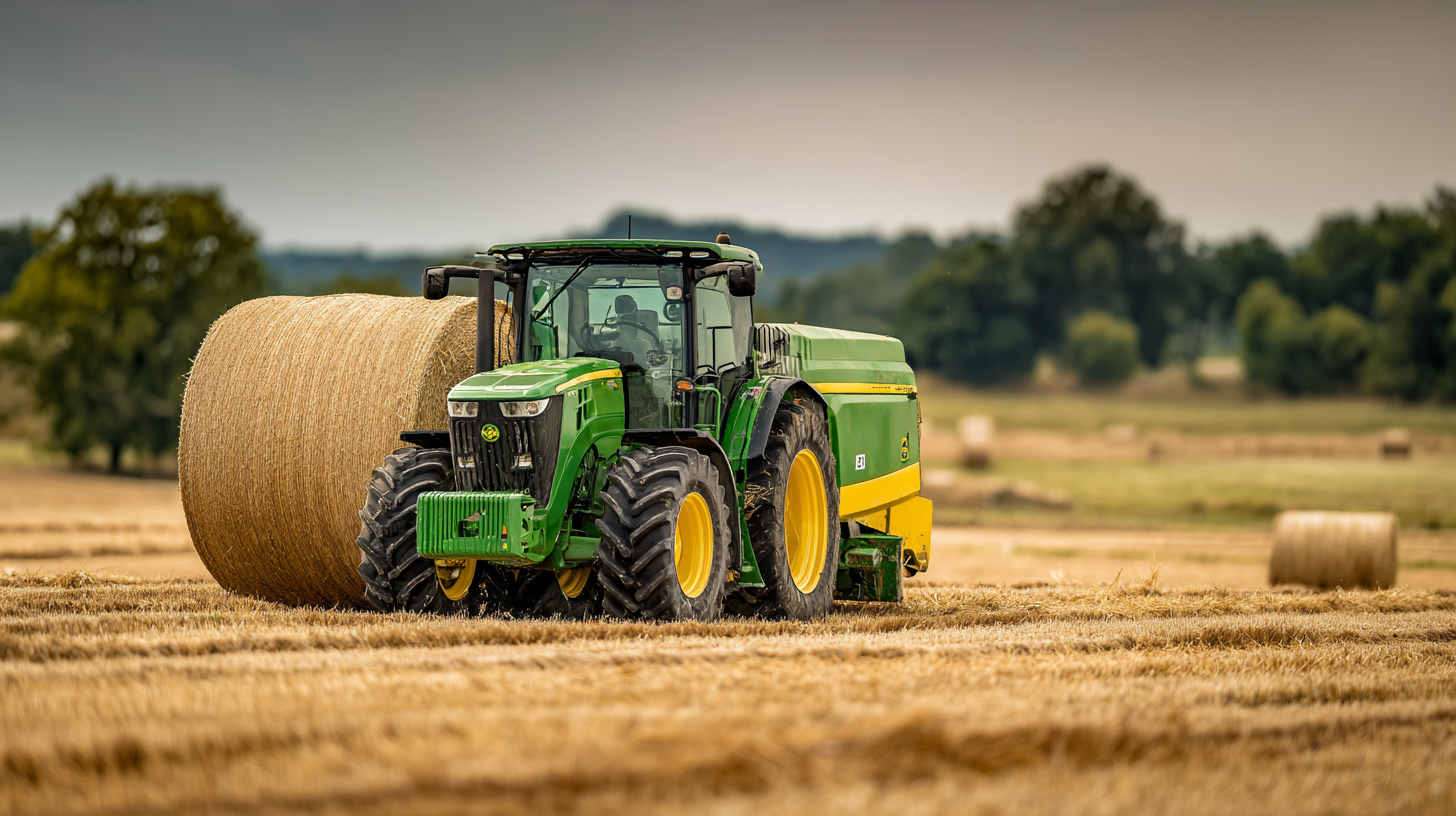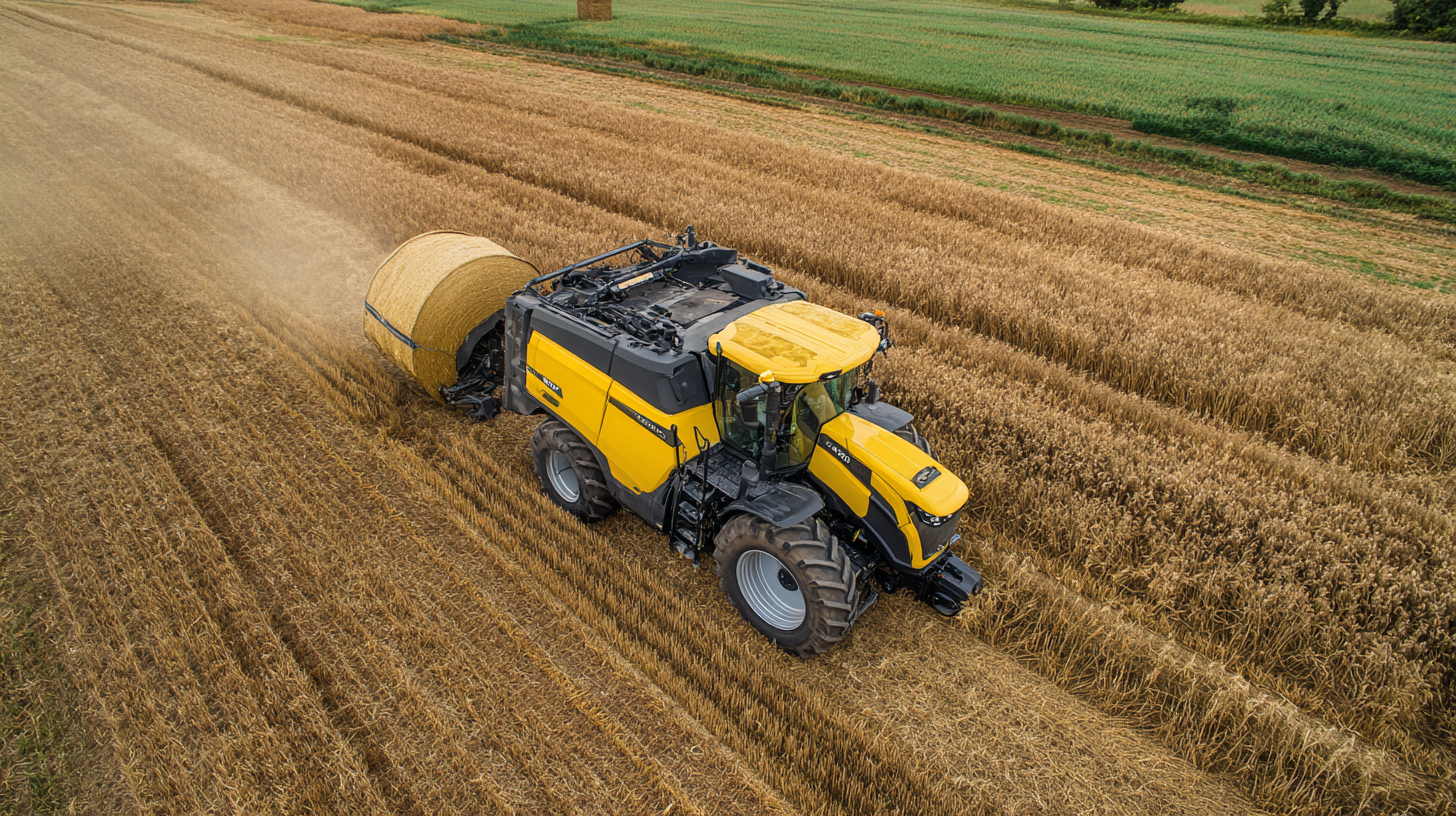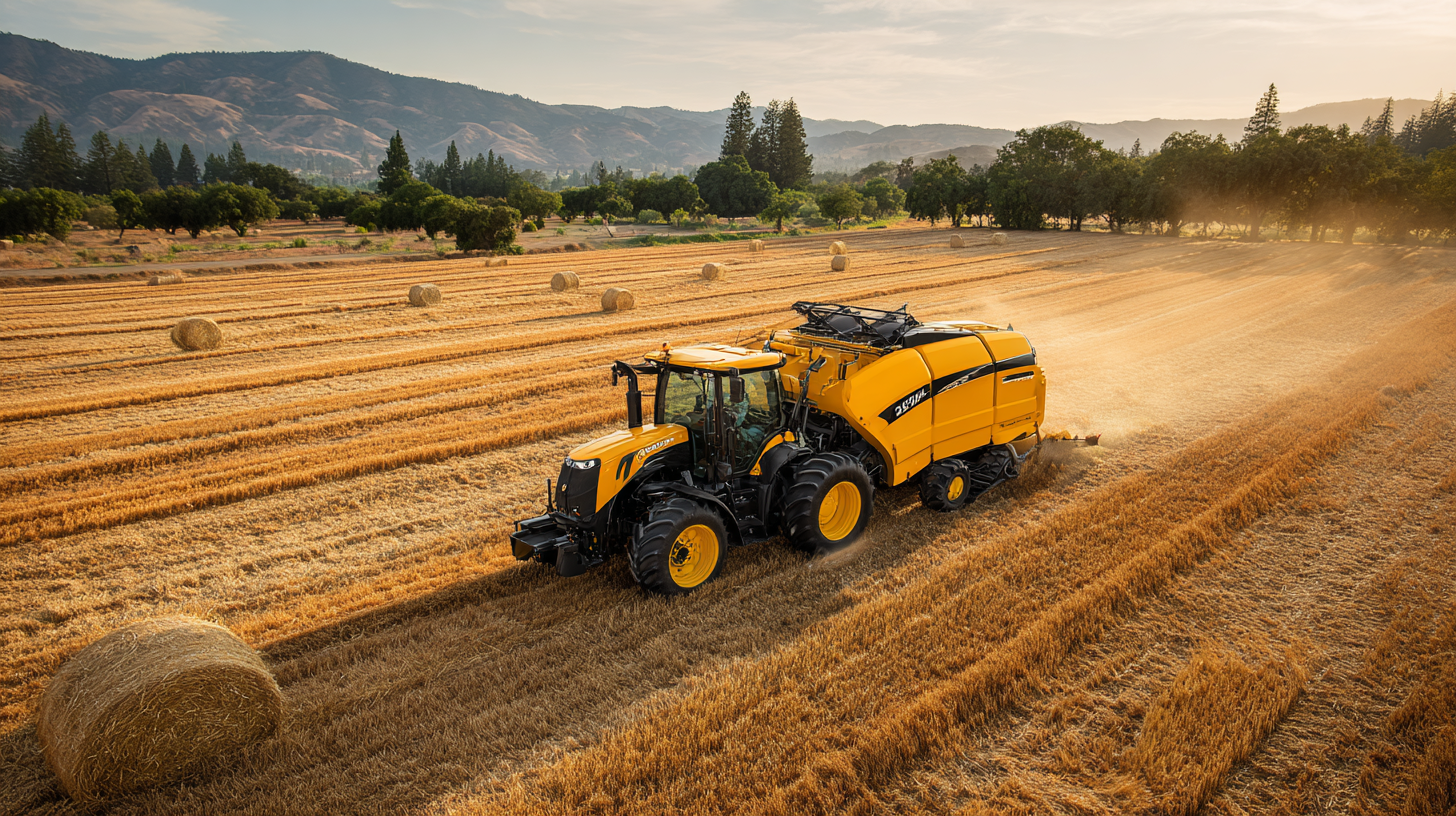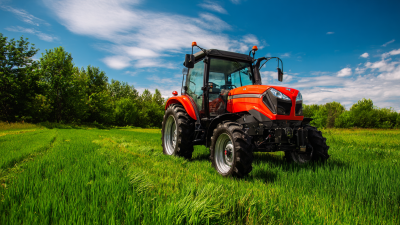How to Choose the Best Round Baler for Your Farm Based on Yield and Efficiency Insights
Selecting the ideal round baler for your farm is crucial as it directly impacts the yield and efficiency of your operation. According to the American Society of Agricultural and Biological Engineers, the average efficiency of round balers can vary significantly, with top-performing models achieving up to 90% in material retention and processing speed. Furthermore, a study by the University of Kentucky showed that farms utilizing advanced round baling technology can increase their forage yields by as much as 20%, translating to higher profitability. As investment in agricultural machinery continues to rise, understanding the features and specifications that best suit your farming practices becomes essential. This guide will explore the key factors to consider when choosing a round baler, ensuring you maximize your farm's productivity and operational efficiency.

Understanding Bale Density and Its Impact on Storage Efficiency
When selecting the best round baler for your farm, understanding bale density is crucial for optimizing storage efficiency and maintaining the quality of your feed. Bale density directly influences dry matter losses, which are significant during hay storage, especially in regions like Mississippi where hay remains a primary livestock feed source during winter. Studies show that higher-density bales can reduce the risk of spoilage and improve storage conditions, ultimately leading to less waste and greater overall yield.

Research indicates that varying moisture content in baled materials can impact the physical properties and calorific value, which must be monitored to ensure consistent quality. Furthermore, advancements in baler technology highlight the importance of press capabilities that not only enhance bale density but also improve pressing speeds and require less manual labor. This increased efficiency in the baling process can critically impact the logistics of feedstock transportation, as a more compact and denser bale can reduce the energy-based break-even distance, allowing for a more sustainable and cost-effective operation on the farm.
Evaluating Bale Shape and Its Role in Crop Preservation and Transport
When selecting the best round baler for your farm, it's crucial to consider the shape of the bales and how that influences crop preservation and transport efficiency. The round bale design not only affects the handling and stacking but also plays a significant role in the moisture retention of the crop. Properly shaped bales create an optimal environment for storage, preventing spoilage and enhancing the quality of the biomass used for feed or energy production.
In the context of biomass, the logistics surrounding infield aggregation of these bales can significantly impact operational efficiency. Transporting bales to a field-edge stack or temporary storage involves careful planning to maximize load sizes and minimize transport costs. The choice of baler affects the density and uniformity of bales, which are critical for effective transport logistics. Ultimately, understanding the interaction between bale shape, crop preservation, and transport processes is essential for farmers aiming to optimize yield and operational efficiency.

Analyzing Engine Power Requirements for Optimal Baler Performance
When selecting the best round baler for your farm, understanding engine power requirements is crucial for achieving optimal performance and efficiency. Research indicates that a baler's engine power directly impacts its capacity to handle various types of crops. For instance, balers with at least 50 to 70 horsepower are often recommended for medium to high-density bales, particularly in regions where farmers face challenges with wet or heavy conditions. This power allows the baler to operate efficiently without bogging down, ensuring that the yield is maximized while maintaining consistent output throughout the farming season.
Additionally, a recent survey of equipment performance highlighted that balers with variable chamber designs can significantly enhance yield efficiency. These models, which adapt to the moisture content and type of forage being baled, provide farmers with the flexibility they need to optimize their operations. According to industry data, balers that adjust their compression levels can increase bale density by up to 25%, leading to better storage and transport efficiency. Thus, when evaluating your options, consider not just the horsepower but also the technological advancements in baler design that can contribute to increased productivity on your farm.
Comparing Twine and Net Wrap: Which is Better for Your Yield?
When it comes to maximizing yield in forage production, the choice between twine and net wrap for baling can significantly impact efficiency and quality. Recent industry studies have shown that net wrap is often preferred by farmers for its ability to better preserve the nutritional value of the forage. According to a report by the American Society of Agronomy, bales wrapped in netting can reduce spoilage by up to 25% compared to those bound with twine. This is critical during storage, where moisture retention can lead to mold growth and nutrient loss, ultimately affecting the forage's market value.
Moreover, the mechanical efficiency of net wrap has been highlighted in various agronomy reports. Bales wrapped with net can be produced at a faster rate, with some manufacturers claiming up to a 30% increase in baling speed. This increase in productivity can help farmers optimize their operations and ultimately increase their overall yield. Additionally, net wrap techniques minimize the risk of damages during transport, enhancing the quality of bales delivered to market. As farmers strive to enhance productivity and maintain high-quality yield, the preference for net wrap over twine is becoming increasingly evident in modern farming practices.
Assessing Technology Features that Enhance Operational Efficiency in Round Balers
When selecting a round baler for your farm, technology features play a crucial role in enhancing operational efficiency. Advanced models offer smart technology integration, such as automatic bale size adjustment and moisture sensors. These features not only ensure optimal bale formation but also maximize harvest quality by monitoring conditions in real-time. By leveraging such innovations, farmers can significantly increase productivity while minimizing losses.
Tips for Choosing the Right Technology:
- Look for models with GPS tracking to analyze field performance and improve operational planning.
- Consider balers equipped with user-friendly interfaces that simplify settings adjustments, making it easier for operators to use effectively.
- Evaluate options that provide remote diagnostics, enabling timely maintenance and troubleshooting, which are vital for minimizing downtime during peak harvest periods.
Investing in a round baler that boasts these technological enhancements can lead to better yield and efficiency, ultimately supporting your farm's success in a competitive market.
Related Posts
-

What Are the Advantages of Using Small Utility Tractors for Your Farm
-

The Ultimate Guide to Finding the Most Affordable Compact Tractor for Your Needs
-

Exploring Unique Applications of Round Balers in Modern Agriculture
-

Maximizing Efficiency with Utility Tractors for Modern Agricultural Practices
-

What is a compact tractor and how it revolutionizes modern farming globally
-

Essential Checklist for Choosing the Right Small Front Loader Tractor